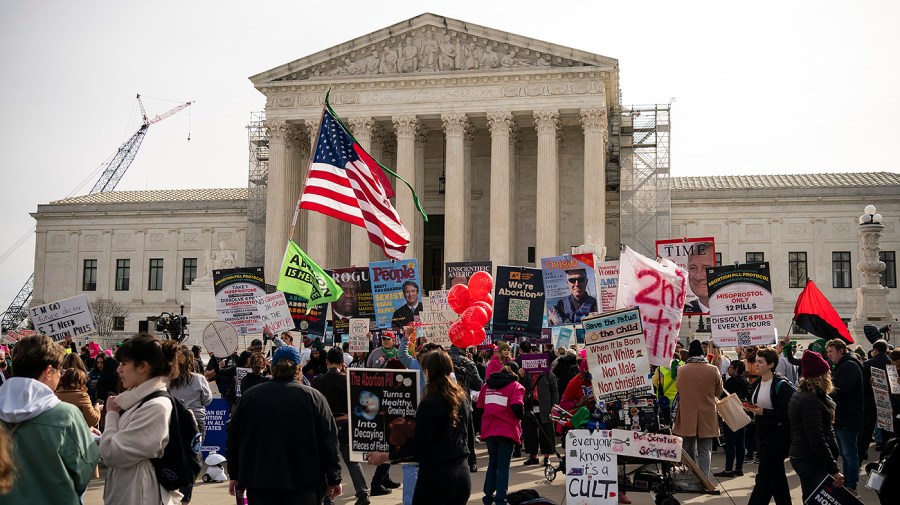
Republican attorneys general from 17 states have filed a lawsuit challenging a rule entitling workers to some abortion accommodations, alleging the regulation adopted by the Equal Employment Opportunity Commission (EEOC) is in overreach.
The lawsuit led by Tennessee and Arkansas was filed in federal district court in eastern Arkansas on Thursday. It alleges that EEOC’s rule, which implemented the Pregnant Workers Fairness Act (PWFA), is in violation of the law.
The rule, implemented in mid-April, requires those covered under it to be given “reasonable accommodations” when it comes to childbirth, pregnancy and other conditions. It had bipartisan support when it passed in Congress.
“An unelected body like the EEOC Commission does not have the authority to rewrite laws passed by Congress,” Alabama’s Attorney General Steve Marshall said in a statement. “Congress sought to ensure accommodations on the job to promote the health of pregnant women and their babies.”
“[President] Biden’s EEOC has illegally transformed that bipartisan law into a mandate that employers facilitate abortions. Biden is again violating the law to promote his radical agenda, and we will again stop him.”
The final regulations were adopted by the EEOC on April 19 in a 3-2 vote.
The states are arguing the EEOC “seeks to hijack these new protections for pregnancies by requiring employers to accommodate workers’ abortions — something Congress did not authorize.”
They also alleged that their states would face “various” costs, “including those associated with lost productivity, shift covering, and provision of additional leave days, among others.”
Compliance and human resources costs would be another financial hit for the states, according to the lawsuit.
In addition to Tennessee, Arkansas and Alabama, the other states joining the lawsuit were Florida, Georgia, Idaho, Indiana, Iowa, Kansas, Missouri, Nebraska, North Dakota, Oklahoma, South Carolina, South Dakota, Utah and West Virginia.
Copyright 2024 Nexstar Media Inc. All rights reserved. This material may not be published, broadcast, rewritten, or redistributed.














